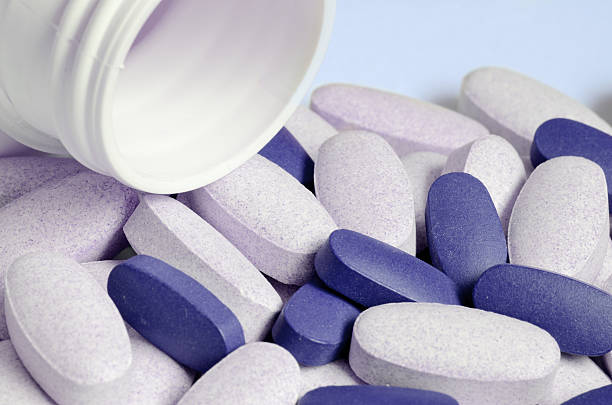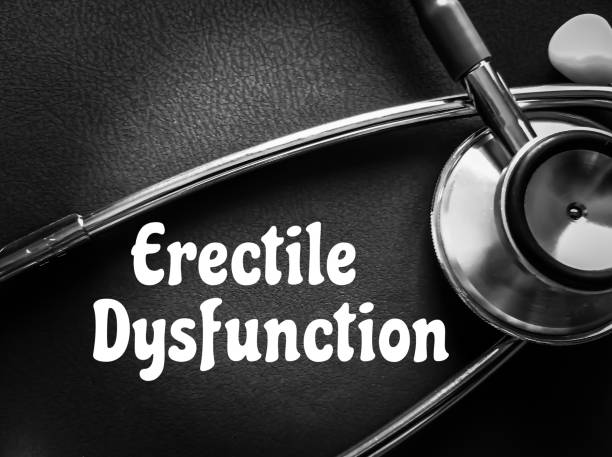Introduction
Erectile dysfunction (ED) is common and can affect men of all ages. Many men have questions but may feel unsure about where to start. This blog answers the most frequently asked ones in a simple, friendly way that’s easy to understand.
You’ll learn about what causes ED, how it can be treated, and tips to improve sexual health. The goal is to help you feel informed, confident, and ready to take action—whether it’s starting a conversation with your doctor, exploring treatment options, or making healthy lifestyle changes. Let’s get started!
What Is Erectile Dysfunction?
Erectile dysfunction, or ED, means a man can’t get or keep an erection firm enough for sex. This can happen once in a while or more often, and it can affect men at any age. It does not mean there is something wrong with your masculinity or who you are as a man. Many factors can cause ED, such as stress, health conditions, or certain medications.
Sometimes it’s linked to lifestyle habits like smoking, drinking too much alcohol, or lack of exercise. Learning what ED is and why it happens helps you understand your body better and reminds you that you are not alone—many men face the same challenge, and it can often be treated.
How Common Is Erectile Dysfunction?
Erectile Dysfunction is more common than you think:
At least 50% of men over age 40 have some form of erectile dysfunction, and it’s not just an “older man’s” issue—ED can affect men at any stage of life. The chances increase with age and with certain health conditions, such as diabetes, heart disease, or high blood pressure. Lifestyle habits like smoking, poor diet, or lack of exercise can also raise the risk. You are not alone, and help is available through medical treatments, lifestyle changes, and support from healthcare providers.
For more on ED prevalence, see trusted sources like the Mayo Clinic or the National Institutes of Health (NIH). For example, Mayo Clinic offers clear statistics on how common ED is and explains its many possible causes.
(Mayo Clinic – Erectile Dysfunction)

What Causes Erectile Dysfunction?
Physical Causes
Erectile Dysfunction may have physical roots such as:
- Heart disease or high blood pressure – These can reduce blood flow to the penis, making it harder to get or keep an erection.
- Diabetes – High blood sugar can damage blood vessels and nerves that are important for sexual function.
- Obesity – Excess weight can lower testosterone levels and increase the risk of conditions linked to ED.
- Low testosterone – This hormone plays a key role in sex drive and erections, and low levels can cause problems.
- Neuropathy (nerve damage) – Damage to the nerves, often from diabetes or injury, can affect signals between the brain and penis.
- Smoking or substance use – These can harm blood vessels, reduce circulation, and interfere with sexual performance.
Understanding these possible physical causes can help you and your doctor find the right treatment plan.
Psychological Causes
Stress, anxiety, or depression can also cause erectile dysfunction. Mental health plays a big role in sexual performance because the brain triggers the physical process that leads to an erection. Worrying about sexual performance can create a cycle where anxiety makes Erectile Dysfunction worse. Relationship problems, work pressure, or major life changes can also add to the stress.
The American Urological Association provides clear guidance on both physical and psychological causes of ED, helping men and their partners understand that treatment may include counseling, stress management, and lifestyle changes, along with medical care.
What Are Common Symptoms?
The main symptom of erectile dysfunction is not being able to get or keep an erection firm enough for sex. But there are other signs to watch for:
- Trouble starting or maintaining an erection – You may find it hard to get an erection, or it may not last as long as you need.
- Reduced sexual desire (libido) – A lower interest in sex can sometimes go along with ED and may be linked to hormones, stress, or relationship issues.
- Worry or stress about sexual performance – Anxiety about how you will perform can make ED worse, creating a cycle that is hard to break.
If you notice these signs, it’s time to talk to someone—like a doctor or urologist—who can help find the cause and suggest the right treatment. Early action can improve both your sexual health and your overall well-being.
How Is Erectile Dysfunction Diagnosed?
What to Expect with Your Doctor
Your healthcare provider will ask:
- Questions about your medical history and sexual health – This can include when your symptoms started, how often they happen, and any medications you take.
- Physical exam, including heart and nerve checks – These help spot health issues, like poor circulation or nerve damage, that may cause ED.
- Tests, like blood pressure, blood sugar, or hormone levels – These look for conditions such as diabetes, high blood pressure, or low testosterone.
They may also perform specific tests, like:
- Blood tests for testosterone – To see if low hormone levels are affecting your sexual function.
- Tests to check blood flow in the penis – Such as ultrasound, to make sure enough blood reaches the erectile tissue.
Getting a proper diagnosis is the first step toward finding the right treatment. This process helps your doctor match you with solutions that work best for your body and your lifestyle.

What Are the Treatment Options for Erectile Dysfunction?
Lifestyle Changes
Simple steps can help:
- Exercise regularly – Physical activity improves blood flow, boosts energy, and supports a healthy heart—all important for erections.
- Eat healthy food – A diet rich in fruits, vegetables, whole grains, and lean proteins can help protect blood vessels and balance hormones.
- Maintain a healthy weight – Staying at a healthy weight reduces the risk of conditions like diabetes and heart disease that can cause ED.
- Quit smoking – Smoking damages blood vessels and limits circulation, making erections harder to achieve.
- Limit alcohol – Too much alcohol can affect nerve function and lower testosterone levels, both of which can lead to ED.
These healthy lifestyle changes are often a strong first step toward better erectile health and overall well-being. Over time, they can also improve energy, mood, and confidence.
Medications
Common medications are PDE5 inhibitors like:
- Sildenafil (Viagra®)
- Tadalafil (Cialis®)
- Vardenafil (Levitra®)
These are safe when used as directed by your doctor. A trusted source on medication details is the U.S. Food & Drug Administration (FDA).
Devices & Other Therapies
Other options include:
- Vacuum erection devices (penile pumps)
- Penile injections or urethral suppositories
- Hormone therapy (if low testosterone)
- Counseling or sex therapy, especially if stress or anxiety are involved
Surgery
In rare cases, surgery such as penile implants may be considered. This is usually for men who don’t get relief from other treatments.
Are There Risks or Side Effects?
Yes. It’s important to know:
- Medications may cause headache, flushing, or upset stomach.
- Don’t take ED meds with nitrates (common in heart disease).
- Vacuum devices can cause minor bruising.
- Injections can cause pain or scar tissue.
- Surgery has normal risks like infection.
Talking honestly with a doctor helps you choose the safest option.
Can I Prevent Erectile Dysfunction?
You may lower risk by:
- Controlling blood pressure and diabetes – Managing these conditions helps protect blood vessels and nerves that are important for erections.
- Eating a balanced diet – Choose fruits, vegetables, whole grains, lean protein, and healthy fats to support heart health and hormone balance.
- Staying active – Regular exercise improves blood flow, boosts stamina, and can raise testosterone levels.
- Keeping a healthy weight – A healthy weight lowers the risk of health problems linked to ED, such as heart disease and hormonal changes.
- Quitting smoking – Smoking damages circulation and can directly affect erectile function.
- Managing stress and mental health – Reducing stress and treating anxiety or depression can help break the mental barriers to good sexual performance.
Good overall health often supports good sexual health, so caring for your body and mind can also protect your erections.

When Should I Talk to a Doctor?
Speak to a healthcare provider if:
- ED happens often or lasts more than a few weeks
- You have heart disease, diabetes, or other chronic conditions
- You’re worried about your sexual health or mental wellbeing
A doctor can guide you through testing, treatment, or referral to a specialist.
Frequently Asked Questions (FAQs)
Here are quick answers:
1. Is ED normal for older men?
Yes. A study shows about half of men over 40 face ED. It’s common and not shameful.
2. Can ED be a sign of something worse?
Yes. ED can be an early sign of heart disease, diabetes, or nerve problems. Don’t ignore it.
3. Do supplements help?
Many supplements are unregulated. It’s best to talk to your doctor before using them.
4. Is it safe to share ED meds with a partner?
Never share prescription meds. They are tailored to your health. Always use as prescribed.
5. Will changing diet help?
Yes. Healthy foods, like fruits, vegetables, whole grains, and lean protein, support blood flow and hormone health.
Final Thoughts & Call to Action
Erectile Dysfunction is common. Answers and help are out there. You’re taking a smart step by learning more. Now, what’s next?
- Bookmark this page for quick FAQ access.
- Share it with someone who may benefit.
- Ready to talk to a doctor? Schedule an appointment—even a virtual one.
Your health and confidence matter. You’re not alone—and help is real. Let us know: what questions do you still have? Drop a comment below, and let’s keep this conversation going.

